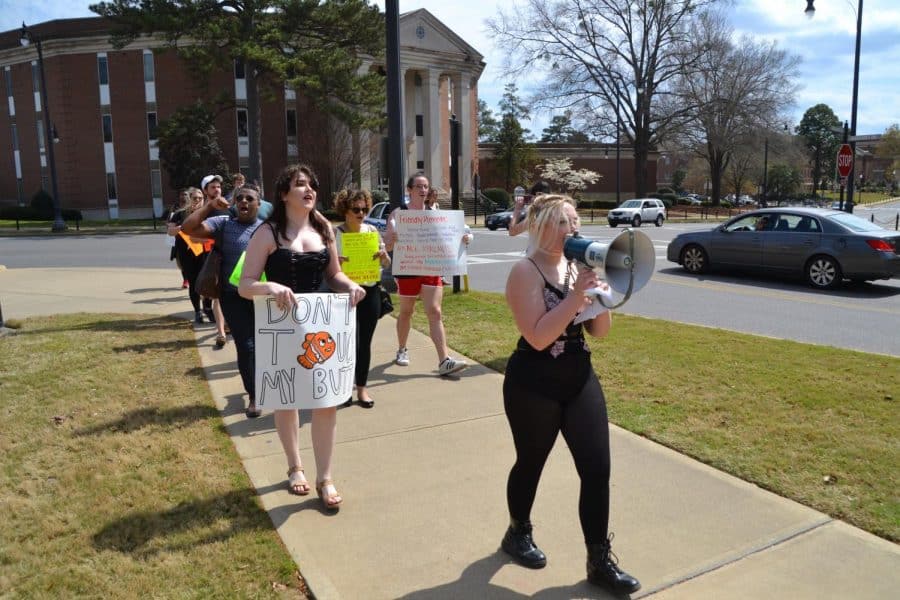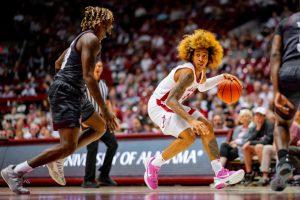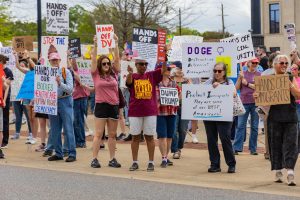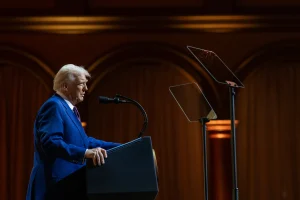University works to improve free speech on campus
January 14, 2019
The University of Alabama received a “yellow light” free speech rating by the Foundation for Individual Rights in Education (FIRE), indicating some of the University’s policies could be used to limit protected expression.
FIRE is a nonprofit and nonpartisan organization dedicated to defending liberty, freedom of speech, due process, academic freedom, legal equality and freedom of conscience on college campuses. When it comes to protecting free speech at The University of Alabama, the University is one of about 270 institutions around the country that earned FIRE’s “yellow light” rating.
The organization was founded in 1999 by a University of Pennsylvania professor and a civil liberties attorney, as they saw a need for an organization that would defend student and faculty free speech rights. Now, 20 years later, FIRE is continuing to work with students, faculty and universities to sustain fundamental American freedoms.
The rating system works like a traffic light scale. The “green light” policies do not restrict speech at all, and “yellow” and “red light” ratings are given if constitutionally protected speech is restricted.
According to FIRE’s spotlight database, “a ‘yellow light’ institution is one whose policies restrict a more limited amount of protected expression or, by virtue of their vague wording, could too easily be used to restrict protected expression.”
Laura Beltz, FIRE attorney and lead author of the study, said she has been seeing a lot of improvements among universities in their ratings, but she also explained the risks of “yellow light” ratings, where most universities stand today.
“In 2009, when we put out this report, 75 percent of colleges were getting the red light rating, so we are seeing improvements in the policies, but today there’s just too many schools getting that ‘yellow light’ rating,” Beltz said. “Maybe they see it as a safety in numbers, but these ‘yellow light’ ratings have been struck down by the court as unconstitutional, so they really serve just as much as a threat.”
Beltz said the University has recently reached out to FIRE regarding their ratings, and the two are in the process of trying to improve the University’s rating.
“We are currently working with The University of Alabama and are very hopeful that we can collaborate on this and work with them to arrive at policies that meet their concerns but that also protect free speech rights,” Beltz said.
The University’s sexual misconduct policy, event planning, harassment and advertisement policies are a few policies that have been recognized with “yellow light” ratings, according to FIRE’s spotlight database. Its Code of Student Conduct Preamble is the only “green light” rating that the University has obtained.
Chris Bryant, assistant director of media relations, said in an email that the University tries to explain its reasoning and strategy regarding speech policies.
“As an institution of higher learning, UA attaches great value to freedom of speech and open debate, and it also attaches great importance to the principles of civility and respect that govern an academic community,” Bryant said. “University policies are drafted to abide by the law and foster the University’s teaching and research mission. The University regularly reviews its policies and makes modifications when necessary to ensure compliance with applicable law.”
To Lexi Matallana, a senior majoring in public relations, free speech is important to the United States as a whole, especially for students, but she understands why the University abides by certain policies.
“I think UA is usually careful about remaining neutral when it comes to how their speech policies they have implemented can affect different groups,” Matallana said. “It could be beneficial to work to ensure a balance between the ease of the University operations and the liberty of students to do things like host organization events and use campus spaces.”
Chris Roberts, associate professor in the department of journalism and creative media, said when it comes to the First Amendment and student media, he believes the University is much further along.
Roberts serves as chairman on the media planning board, which is a collection of faculty, staff, media professionals and students who work together to accept policies and hire student managers to run various student media organizations – including The Crimson White.
“I can’t disagree with the ratings, but we have incredible freedom that other universities don’t always give their students,” Roberts said. “With that freedom comes responsibility, and I think our media has been very responsible, so when it comes to that I would recognize we are incredibly ‘green-lighted.’”





















